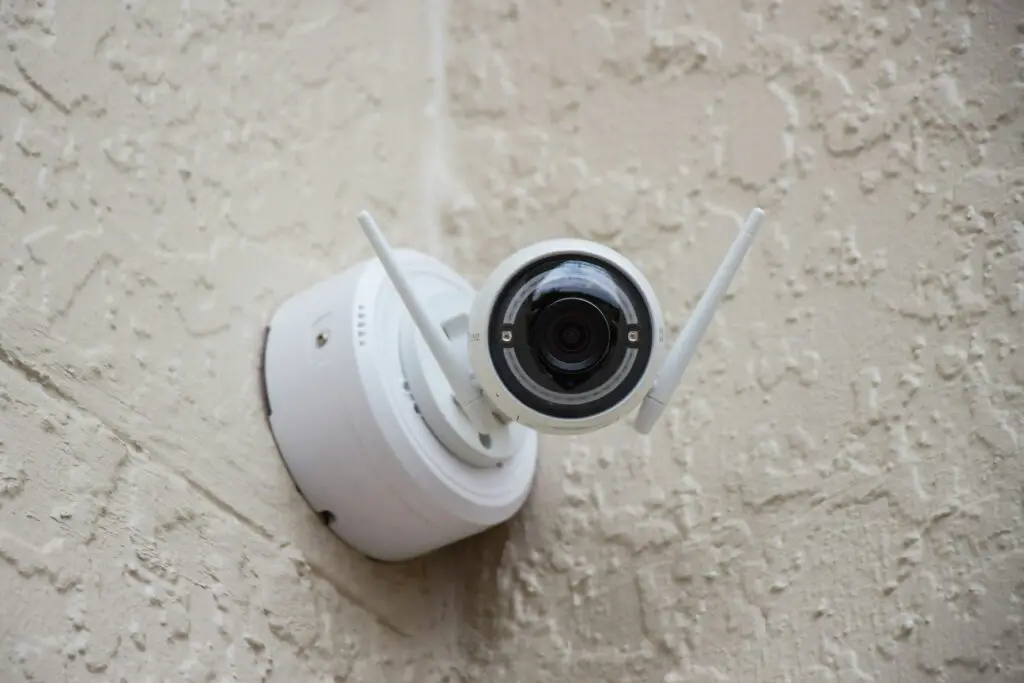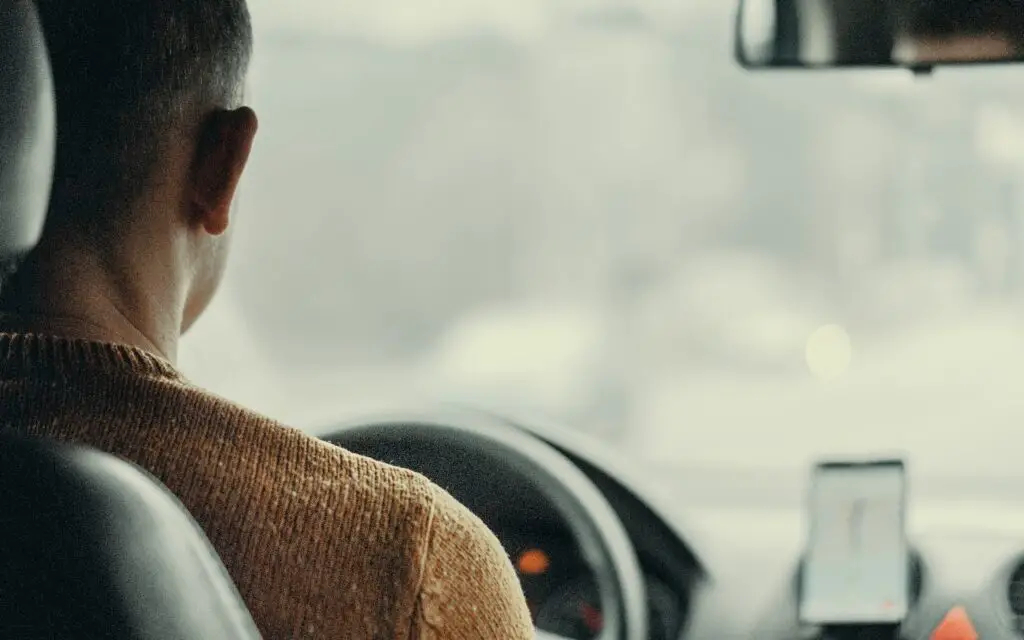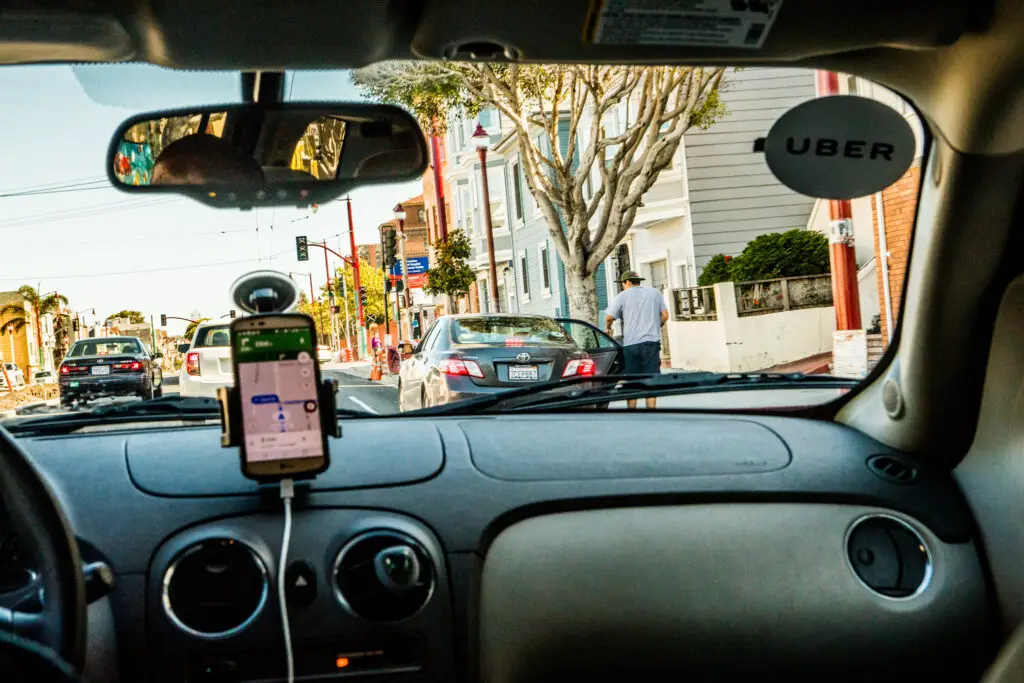In this viral video, an Uber passenger becomes angry after realizing his driver has a camera in the car. You may also be wondering: Can an Uber driver film you? Let’s look at Uber’s camera policy and the laws regarding filming others in private and public spaces.
The viral video shows two passengers in an Uber car. After making eye contact with the camera, one passenger looks uncomfortable and states, “It’s illegal for you to video record me right now without my consent.” Calmly, the driver disagrees, stating it is legal. He adds that he has a posted warning on the door informing others that a camera is filming. After more heated arguing, the driver asks the passengers to leave, and they do so begrudgingly.
Uber’s Camera Policy
Uber has many policies and rules in place for their uses. From crashes to assaults, they are all meant to protect everyone using the app.
According to Uber’s user policies, drivers may choose to install a camera or dashcam in their vehicle. They strongly support using dashcams and cameras, enabling them to send evidence to Uber or law enforcement.
Uber’s camera policy does come with a few important reminders. They warn users that state laws may vary regarding the use of recording devices. Some areas may allow for full recording, whereas others may limit to video recording or recording with consent only. Uber also warns that directly posting footage of riders or drivers is against their community guidelines.
If you do have a dashcam in your car, Uber’s camera policy recommends that you register it with them. Doing so allows them to let passengers know and lets them easily obtain evidence from you if needed.
One-Party Consent and Filming Laws

In addition to Uber’s camera policy, there are a lot of federal and state laws regarding the recording of others. On a national level, recording a conversation you are a part of is legal under “one-party consent.” In other words, as long as one of the parties involved in the recording gives consent, it is legal. With that said, other federal laws protect recording in private areas such as bathrooms and locker rooms, even if there is one-party consent.
The laws can become a bit more murky on a state level. Some states follow the federal idea of one-party consent, while others require all parties to consent to a recording. Even further, some restrictions only allow for the recording of video without consent. Likewise, the use of hidden cameras makes these distinctions even more confusing.
Private Property and the Public
While Uber cars are accessible to the public, they are still the private property of their respective drivers. They legally function similarly to supermarkets, which the public readily uses as private property.
On a federal level, equipping private property that experiences public traffic is entirely legal. This idea is what permits stores to use security cameras regularly. For stores, since there is no way to enact one-party consent, most are required only to record video. In contrast, Uber drivers can record video and audio as they are directly involved in the conversation.
As always, any camera use must follow federal laws regarding the assumption of privacy. In no way must any camera film an area that is generally understood to be private. Bathrooms, locker rooms, bedrooms, and other intimate areas fall under this idea. Again, these laws are easy for Uber drivers to follow.
An AAttorney’sThoughts: Can an Uber Driver Film You?

Yes. It is generally legal for an Uber driver to film you. In his reaction to the viral video, attorney Ugo Lord cites the idea of filming the public on private property. As long as Uber drivers are following their federal and state-level laws, they are fully legal in their actions.
Ugo Lord also notes that the cameras in the scenario were fully in the open. Furthermore, the driver had even posted warnings on his car. Thus, if the riders got in the vehicle acknowledging the sign and the visible cameras, they would give their implicit consent.
At the end of the clip, the driver even politely asks the two riders to leave, which is also within his rights.
Conclusion
In the end, many people ask, “Can an Uber driver film you?” The idea of being filmed, especially without consent, can be frightening. Federal and state laws permit the recording of conversations with the consent of one party. Similarly, the law allows the installation of security cameras on private properties that the public frequents. The Uber camera policy even alerts users to the widespread use and allowance of cameras.

